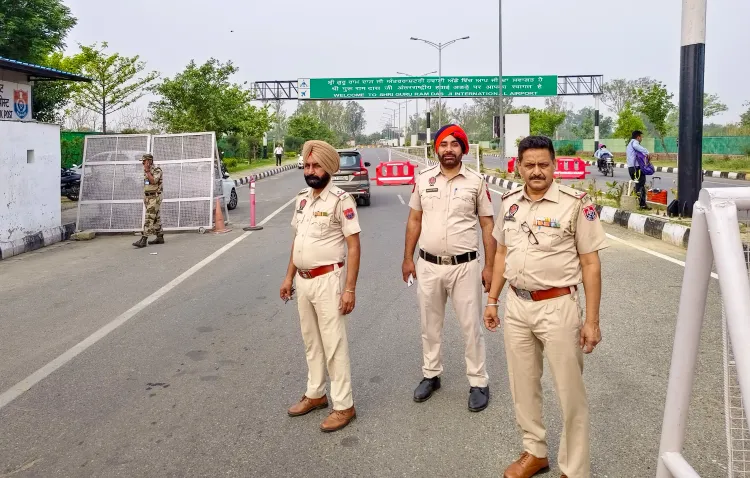Will Punjab Deploy Ministers in Sensitive Border Districts?

Synopsis
Key Takeaways
- Punjab government deploys ministers in sensitive districts.
- All educational institutions are closed.
- A control room has been set up for public inquiries.
- Residents advised to stay indoors amid air warnings.
- Some villagers are relocating to safer areas.
Chandigarh, May 9 (NationPress) In light of escalating tensions, the AAP administration in Punjab, which boasts a 532-km border with Pakistan, has declared plans to deploy Cabinet ministers across all six sensitive border districts — Ferozpur, Pathankot, Fazilka, Amritsar, Gurdaspur, and Tarn Taran — which are already under heightened alert.
Furthermore, the Cabinet is set to convene in Chandigarh to assess readiness and operational capabilities in hospitals, fire stations, and the distribution of rations throughout the state.
An official communication from the government indicated that following the meeting in Chandigarh, a minimum of 10 ministers will head to the districts adjacent to the International Border.
Ministers Lal Chand Kataruchak and Ravjot Singh will oversee Pathankot and Gurdaspur respectively, while Kuldeep Dhaliwal and Mohinder Bhagat will manage Amritsar. Laljit Bhullar and Harbhajan Singh are tasked with Tarn Taran.
Additionally, Ministers Hardeep Mundian and Gurmeet Singh Khudian will attend to Ferozepur, whereas Baljit Kaur and Tarunpreet Sondh will be responsible for Fazilka.
In Chandigarh, the shared capital of Punjab and Haryana, officials have announced the temporary suspension of all educational institutions until Saturday.
The Chandigarh administration has issued an air warning concerning a potential attack, prompting sirens to be activated. “This is a precautionary step in response to an air alert received from the Air Force Station. Citizens are encouraged to remain calm, stay indoors, and await further guidance from official channels,” stated a release from the District Collector’s office.
Shortly after, the administration declared that the warning had concluded, but advised residents to continue staying indoors as a safety measure.
The Press Information Bureau (PIB) reported a wave of coordinated misinformation circulating through certain social media platforms and mainstream media in Pakistan aimed at instilling fear among the Indian populace.
The PIB's fact-checking division uncovered a video of a drone attack in Jalandhar, Punjab, that was being shared to spark panic. Upon investigation, it was revealed that the footage was unrelated and depicted a farm fire, with timestamps confirming the drone incident occurred later. This was corroborated by the Deputy Commissioner of Jalandhar.
In response to the rising tensions, Punjab has mandated the closure of all educational institutions and postponed examinations. The state government has established a control room for public assistance, reachable at landline numbers 0172-2741803 and 0172-2749901.
As tensions between India and Pakistan rise, residents in certain border villages of Punjab have begun relocating to safer areas. Inhabitants from Amritsar, Ferozepur, Gurdaspur, and Tarn Taran districts near the International Border have started moving their belongings, despite no official evacuation orders from the BSF, Indian Army, or local authorities.
Additionally, all leaves for Punjab Police personnel have been canceled.









